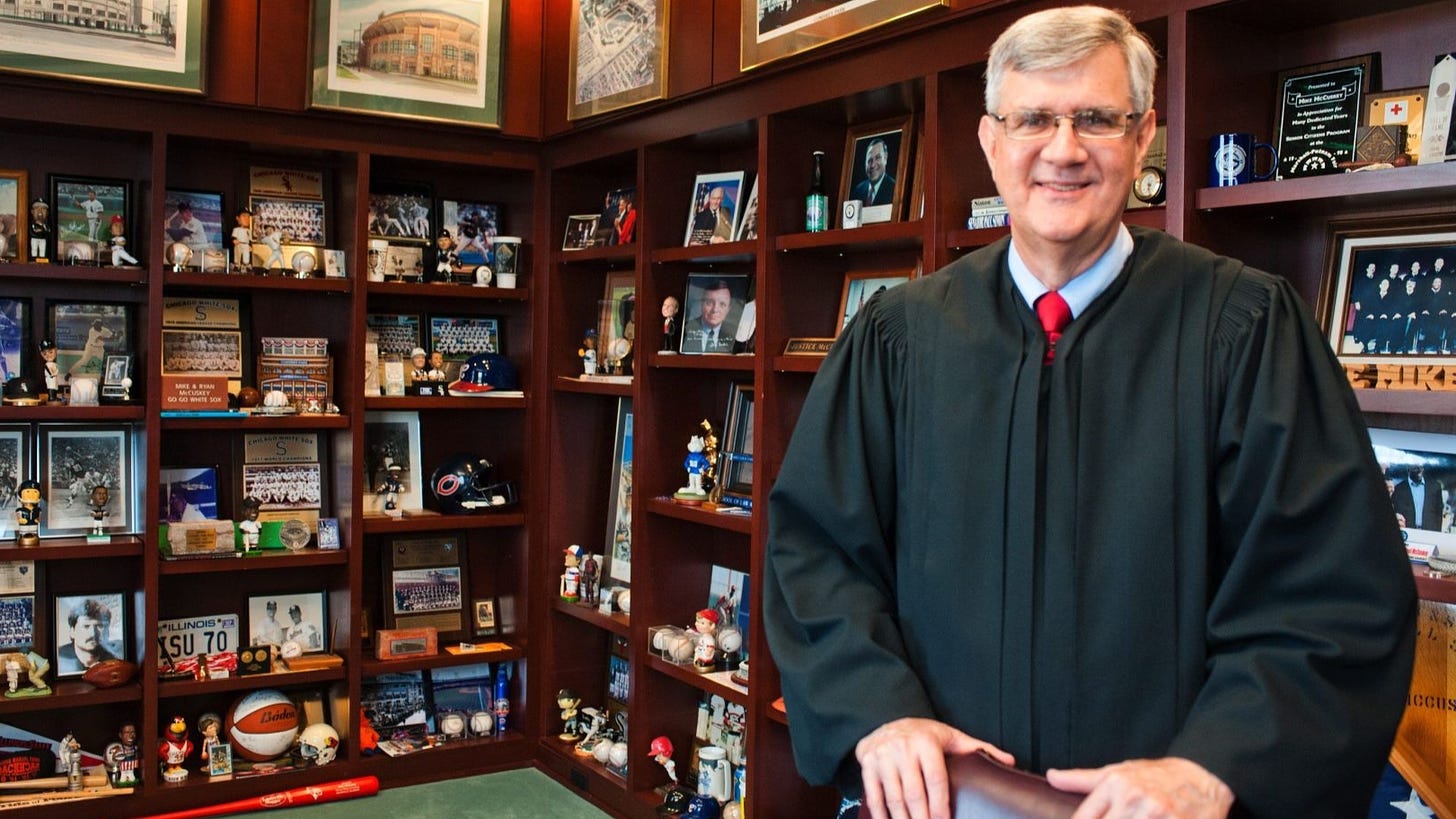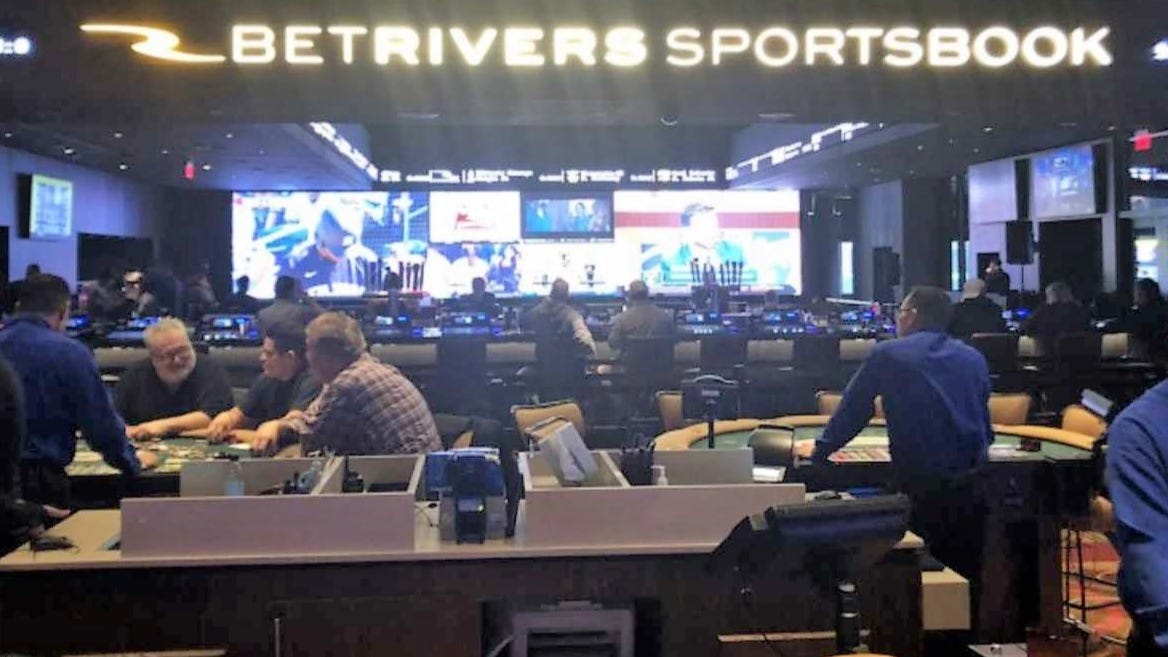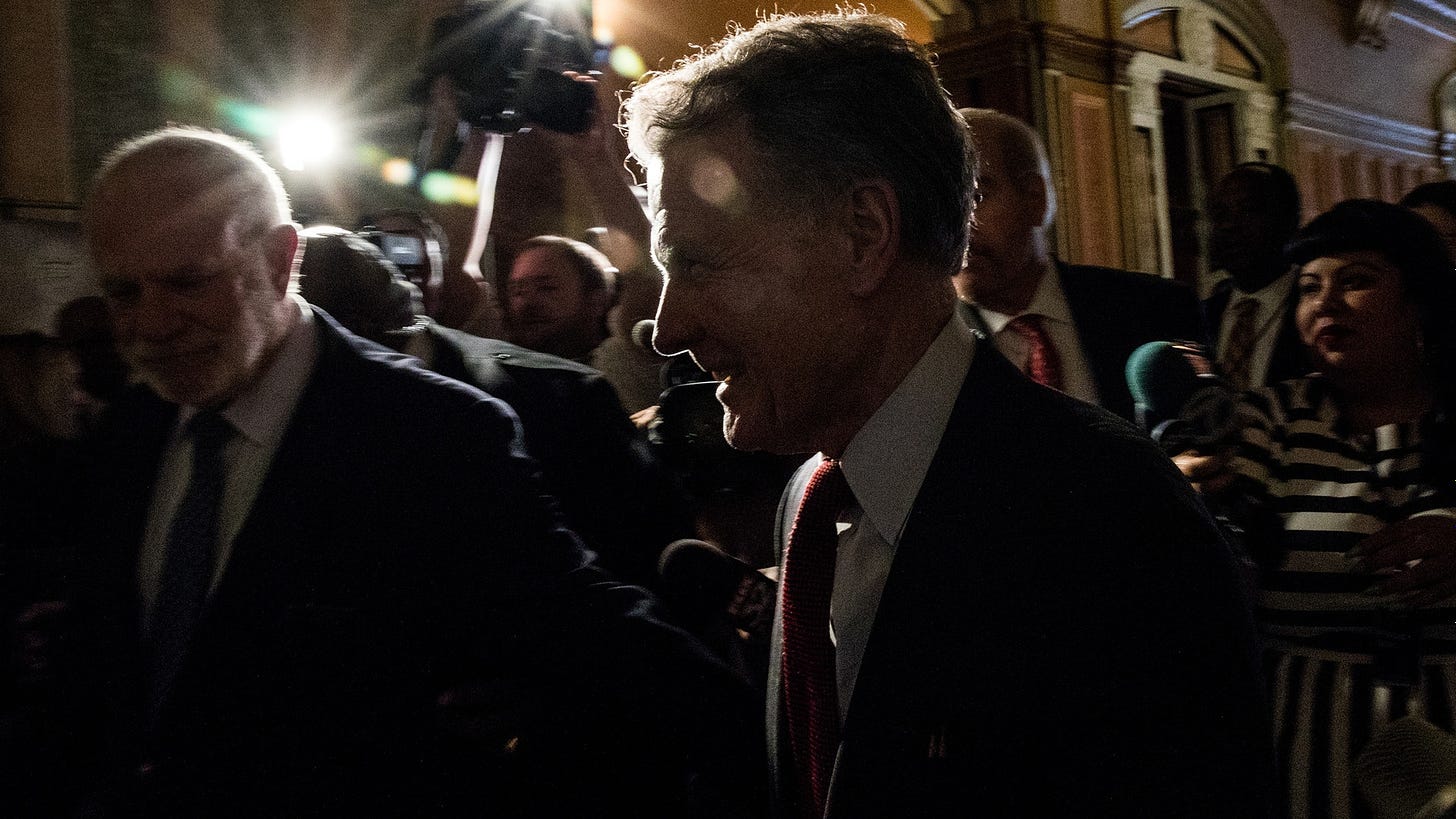THE ILLINOIZE: Thursday Free for All
February 17, 2022
Good morning, friends.
I was up late writing this newsletter and my next column for Shaw Media, so I don’t have anything clever for you this morning.
But I will start with a mea culpa from Tuesday’s newsletter: I said GOP candidate for Governor Richard Irvin had not spent a day on the campaign trail. I was sent photos from some campaign events and speeches he made at Republican events. The media was not given advance notice of these events and Irvin has not taken questions outside of some tightly controlled interviews with Chicago reporters right after he jumped in the race. Obviously, I regret the error, but encourage Mayor Irvin to take some more questions. I have lots and will come out to Aurora for an interview anytime he likes.
And, I hope I can continue to have your support as we grow our community. A paid subscription is just $75 per year or $7.99 per month. It gives you two additional subscriber-only newsletters each week and my undying love and affection. (wink)
Just click below to subscribe now!
You can always email me your thoughts, questions, concerns, complaints, praise, or love notes at patrick@theillinoize.com. I love to hear from you.
Let’s get to it.
YOUR THURSDAY FREE FOR ALL
(note: we’re not responsible for paywalls and restrictions from other news outlets)
Democrats bypass Ethics Commission, nominate former federal judge for Legislative Inspector General (The Illinoize)
Citing a deadlock on the Legislative Ethics Commission, Senate Democrats moved forward Wednesday with their own candidate to fill the vacant Legislative Inspector General position.
The job has been vacant since January when former LIG Carol Pope resigned. Republicans and Democrats who make up the Legislative Ethics Commission have been deadlocked on two candidates who had been forwarded for consideration by a blue ribbon panel that reviews candidates.
Senate President Don Harmon nominated former federal judge Michael McCuskey to fill the position, though he wasn’t vetted by the search committee or recommended by the Legislative Ethics Commission.
Republicans were critical of the handling of the nomination.
"By bypassing the process outlined in law that calls for a citizen search committee to review, vet, investigate, and interview candidates for Legislative Inspector General, the [Democrats] put at risk the public's perception of impartiality of this very important office that investigates impropriety by members of the legislature,” Senate Republican Leader Dan McConchie (R-Hawthorn Woods) said in a statement. “Bypassing the citizen oversight process set in state law is contrary to even Judge McCuskey's stated desires and interpretation of the law. This is not only uncalled for, but feeds into the mistrust that many Illinoisans rightfully have of their state government.”
Sen. Jil Tracy (R-Quincy), who chairs the Ethics Commission, said McCuskey was interviewed by the commission earlier Wednesday, and said McCuskey claimed he should be named “interim” LIG while he goes through the traditional vetting process.
“If we value ethics, we’ve gotta follow statutes and procedures,” Tracy said. “If we want to keep making attempts at being ethical, this gentleman should be acting LIG until he’s vetted, has an FBI check, and then, you’ve gotta open the application process again. That’s how the process is supposed to be in law. I don’t know why the majority party wants continually to rebuke policy and procedures, but apparently you do.”
But Harmon said the job needed to be filled and the Senate needed to break the LEC deadlock.
“The irony is this process is intended to avoid the very situation we have, a protracted vacancy in the important office of the Legislative Inspector General,” Harmon said. “We seek to remedy that with an incredibly well qualified candidate.”
McCuskey was elected judge in Marshall County in 1988 then to the Appellate Court in 1990. In 1998, President Bill Clinton named McCuskey to the U.S. District Court of the Central District of Illinois, where he served as chief judge from 2005-2013 while presiding in Urbana. After retiring, he returned to the bench in his home county of Marshall until retiring for good in 2020. He also spent seven years as Chairman of the Illinois State University Board of Trustees.
When Judge McCuskey was Chief Judge in the Central District, he used to do occasional interviews on the radio station I worked at. A federal judge making public statements, much less taking calls from the public, is rare. The way McCuskey talked about those issues was even more abnormal. He was engaging, thoughtful, funny, and unafraid of saying what was on his mind.
I hope he isn’t hamstrung by the pitfalls that have hampered his predecessors.
Illinois gamblers bet nearly $61 million on Super Bowl — leaving sportsbooks, state in the black, but two casinos seeing red (Chicago Sun-Times)
Illinois gamblers wagered nearly $61 million on the Super Bowl, regulators announced Tuesday, a 33% increase from last year when the big game was on the board legally for the first time in state history.
The biggest day on the sports betting calendar saw Illinois sportsbooks come out on top to the tune of $9.5 million, generating more than $1.4 million in tax revenue, according to figures released by the Illinois Gaming Board.
The statewide handle, or the total amount of money wagered, was just $45.6 million on Super Sunday of 2021, when the house won by $7.7 million and $1.1 million went to state coffers.
Regulators are still tabulating the full breadth of Illinois’ bets, which were allowed on everything from the coin toss (heads) to the color of the Gatorade dumped on winning head coach Sean McVay of the Los Angeles Rams (blue).
Of the state’s eight legal sportsbooks in operation, most of the wagers were taken by the online sports betting giants who have taken over the Illinois market since it launched in early March 2020. DraftKings at Casino Queen led with $21.5 million in Super Bowl bets, followed by FanDuel Sportsbook and Horse Racing with $17 million.
They each turned profits of $2.5 million and $5 million, respectively, but two suburban casinos had tough nights, if not as bad as Cincinnati’s. Hollywood Casino Joliet ended up paying out almost $44,000 more to winning bettors than they took in, while the Grand Victoria Casino in Elgin ended in the red by almost $145,000.
Wall-to-wall sportsbook advertising has raised concerns among counselors of a spike in gambling addiction. Calls to the state’s gambling addiction hotline nearly doubled in the year after Gov. J.B. Pritzker signed the law authorizing sports betting — but that legislation also opened more funding for counseling services.
Tax revenue from sports betting is earmarked for Pritzker’s $45 billion capital infrastructure improvement plan.
Enjoy my money, highways.
COVID, crime spark battle between Pritzker and GOP (Crain’s Chicago Business)
The race for governor appeared to kick into a higher gear [Wednesday] as Illinois Republicans sought to put Gov. J.B. Pritzker on the defensive on two of this year’s top issues—crime and COVID—and the incumbent Democrat accused his rivals of “false messaging” that voters ought to be able to see through.
The flurry of charges and counter-charges come as Pritzker’s own party seems divided over how to respond to a downstate court ruling tossing out the governor’s mask mandate for many public school districts and as GOP officials seem to be trying to outshout each other in their opposition to mask mandates, with several House members vowing to ignore rules requiring masks on the House floor.
It also came after Pritzker came under fire for pardoning an arsonist who now will become chief of the Prairie Du Pont Fire Department near St. Louis, with Republican gubernatorial hopeful Richard Irwin charging that Pritzker “doesn’t care about the safety of Illinois families.”
Pritzker has strongly disputed the ruling from a Sangamon County judge and repeated that criticism at a press conference today, terming it “wrongfully decided” and suggesting that an appellate court will overturn it within days.
Pritzker [Wednesday] blew that off, saying the rule would come back together after the appellate ruling.
“I trust parents and doctors, and what’s significant is that they want kids safe,” Pritzker told reporters. “A majority of parents want mask mandates in place until it becomes safer.”
Pritzker also went after criticisms from Irvin and others that recent spikes in crime rates are linked to passage of a major criminal justice reform package last year that includes some controversial provisions, such as ending cash bail.
Many of those provisions have not yet taken effect, Pritzker said, but in voting against the bill Republicans also voted against increased funding for police and police training that was included. “The Republicans are wrong. . . .They’re false messaging. I hope people see through that.”
Related: Opinion: Crime issue takes center stage in governor's race (Champaign News-Gazette)
Opinion: We disagree about masks. Can we still be friends? (Chicago Tribune)
Temperature checks delay House debate as clash heats up over masks and other COVID-19 restrictions (Chicago Sun-Times)
I’ve been trying to avoid writing about this hubbub in the House all week, but it looks like I can’t avoid it. House rules require masks. The House governs itself. The only people that lose when these House Republicans eventually get thrown off the floor is their constituents, who lose whatever representation they’re receiving from their elected official. I’m so tired of the fighting.
Ray Long: The rise and fall of House Speaker Michael Madigan, an Illinois titan (Chicago Tribune)
What does the speaker think?
At the Illinois Capitol, the question loomed over every major issue. The question came in over the phone, got whispered in the hallway, popped up at a committee hearing and rolled out in a press conference. It is a simple query, of course, expected to be asked in statehouses all across America. In Illinois, though, the answer carried far greater weight. For in Illinois politics, the speaker’s moves at the end of the 20th century and the beginning of the 21st provided a road map for how Illinois got to where we are today.
Have you talked to the speaker about your legislation? Can you get your bill through the House? What’s he going to do next? What does he want?
These questions dominated internal debate in Springfield, be it on guns, pensions, education, gay rights or taxes — before a vote was contemplated, let alone taken. They were asked time after time — by Democrats and Republicans, ranking lawmakers and rookies, lobbyists, labor and business leaders, reporters and editors, generations of governors and, yes, mayors of Chicago.
All wanted to know the positions of the secretive man who did more to shape Illinois politics, government and laws than anyone in the last half century: House Speaker Michael Joseph Madigan, chairman of the Democratic Party of Illinois, committeeman of Chicago’s 13th Ward, lifelong resident of the city’s Southwest Side. Wielding the gavel for all but two years from 1983 to early 2021, making him the nation’s longest-serving speaker, Madigan built the House where he ruled. But in a larger sense, he built the house Illinoisans live in. What the speaker thought became more than an academic question. The answer gave the best clues for politicians who wondered which ideas would succeed or suffocate.
Madigan long wanted to be a powerful leader, much in the form of his mentor, the first Mayor Daley. “The person that finds themselves as a leader in the legislature is pretty much in the position to shape exactly how they wish to perform their job. They can be strong or they can be weak. Active or passive. In my case, I decided years ago that I wanted to be a strong legislative leader, an active legislative leader,” Madigan once said. “I would hope that, acting from a position of strength, that I do good things, not bad things. I would hope.”
Ray Long is an incredible reporter and writer and I look forward to reading this book.
JOIN US












